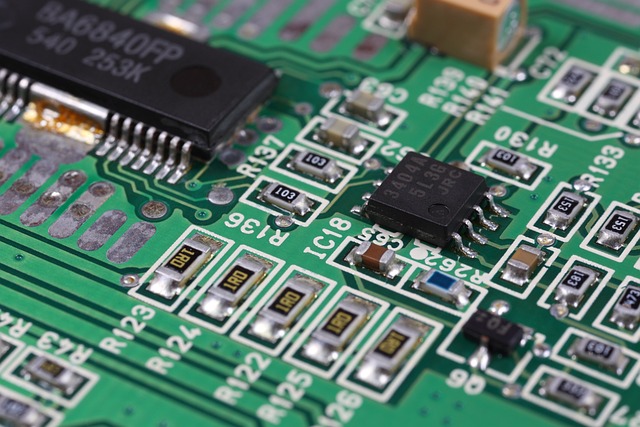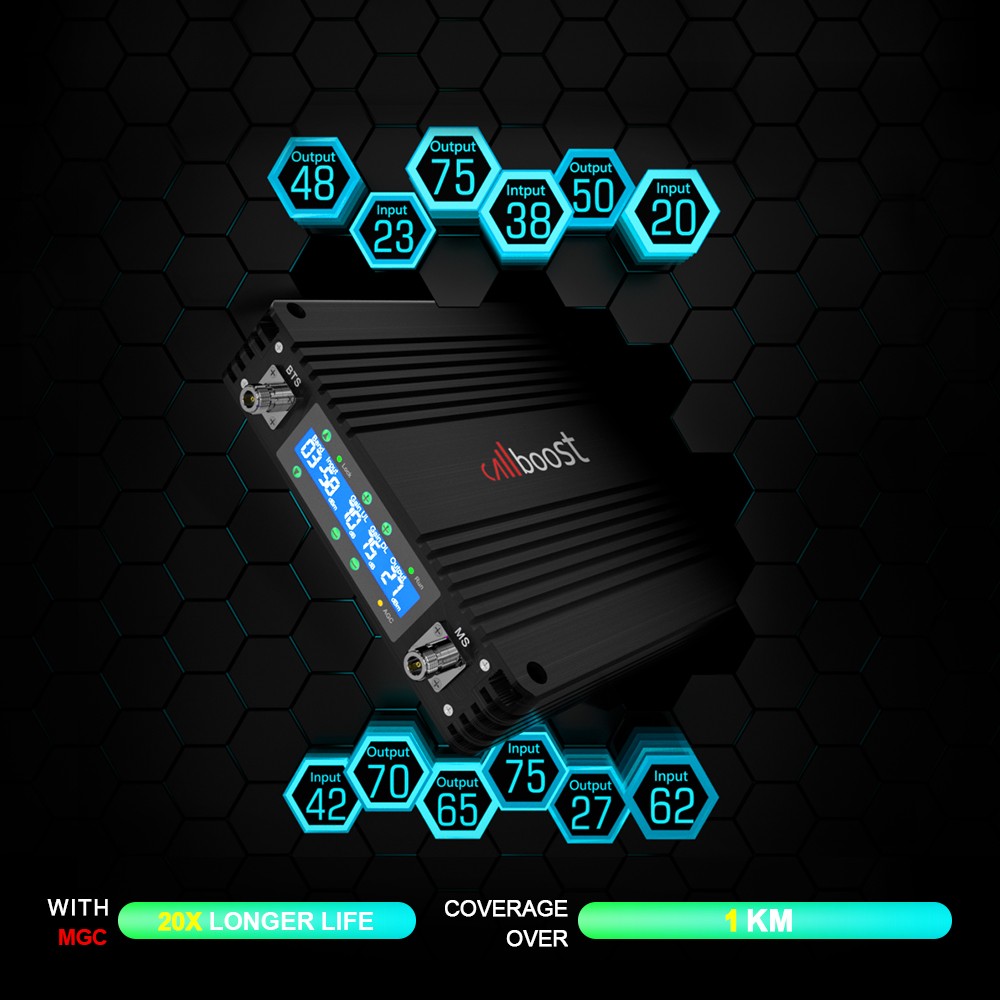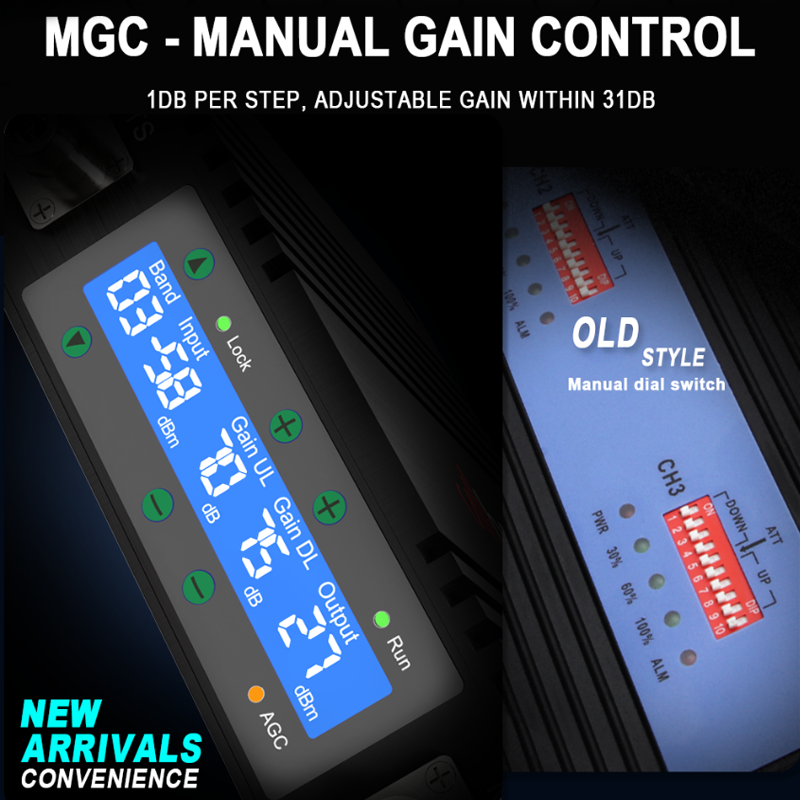A cellular Signal Booster,also known as a repeater or signal booster,is an electronic device specifically designed to enhance mobile signals.They are used to improve the quality of communication and data transmission. However, some improper use may cause interference to cellular network base stations.
Why Do Cellular Signal Booster Interfere With Base Stations?
Mobile signal amplifiers that are not properly configured or poorly designed may cause interference to base stations.The main reasons are as follows.
Excessive output power: If the output power of the cellular amplifier is set too high, it may send signals far beyond the necessary level to the celluar network base station. This overly strong signal can overwhelm the dynamic range of the celluar network base station receiver, causing signal distortion and even saturating the cellular network base station receiver, thereby affecting the recognition and processing of other legitimate signals by the celluar network base station.
Out of band radiation: If the cellular signal booster is not filtered or subjected to other spectrum purification measures, or the technogy can not make good effect,cellular amplifier may generate out of band radiation. That is to say, in addition to the target frequency band, there will also be additional signal leakage to adjacent frequency bands, interfering with the normal operation of the same or other base stations.
Feedback loop: When installed and configured improperly, the cellular siganl booster amplifier may form a signal feedback loop. The amplified signal is captured again by the cellular amplifier and further amplified, forming an infinite recursive process. This strong feedback effect will generate high-energy signals, seriously disrupting the normal operation of the cellular network base station.
Frequency offset: Sometimes, the local oscillator or mixer of an amplifier may experience frequency drift, causing the center frequency of the signal to deviate from the standard value. Once such offset signals reach the base station, they will mix with other normal signals, causing cross modulation and interference.
Lack of isolation: If there is not enough isolation between the mobile cellular amplifier and the cellular network base station, such as using low-quality cables or antennas, the signal emitted by the amplifier may directly "leak" to the base station, causing unnecessary interference.
Illegal frequency band usage: Some inferior amplifiers may use frequency bands exclusively belonging to other operators or specific services without authorization, which undoubtedly causes serious interference and disrupts normal communication order.
What is AGC MGC
AGC (Automatic Gain Control) and MGC (Manual Gain Control) in celluar signal booster are two key technologies used to manage and adjust signal amplification levels, with the aim of optimizing signal quality, avoiding overload and signal feedback issues.

AGC - Automatic Gain Control
Definition and Principle
The automatic gain control system is a mechanism that can automatically adjust the gain level of the amplification circuit to cope with changes in the amplitude of the input signal. In a cellular amplifier, AGC detects the strength of the received signal and dynamically adjusts the gain of the amplifier accordingly to ensure that the output signal is neither too strong nor too weak, and is within the ideal working range.
Effect of AGC
1.Prevent overload: When the input signal suddenly increases, AGC will automatically reduce the gain to avoid cellular amplifier distortion or damage due to overload.
2.Avoiding signal feedback: When the distance between the signal source and the repeater changes, AGC can respond promptly, reduce the signal loop gain, and prevent feedback howling.
3.Maintain signal stability: In environments with large signal fluctuations, AGC can provide a constant output level to ensure that the receiving end obtains consistent and clear signals.
MGC - Manual Gain Control
Definition and Principle
In contrast, manual gain control requires human intervention to set the gain level of the cellular amplifier. In this mode, users or technicians preset a fixed gain value based on the actual situation, rather than letting the system automatically adjust it. MGC is commonly used in situations where the signal environment is relatively fixed or does not require frequent adjustments.
Effect of MGC
1.Precise control: In situations where the known signal conditions are relatively stable or there are special requirements (such as specific frequency priorities), MGC provides a more precise control method, allowing operators to optimize signal quality according to predetermined strategies.
2.Simplify the system: Due to the absence of complex induction and feedback mechanisms, MGC may be a more economical choice in some simple or cost sensitive designs.
3.Avoiding the impact of AGC delay: In some fast changing channel environments, the response time of AGC may cause a brief decrease in signal quality; The pre-set MGC can avoid the uncertainty of immediate regulation.
AGC and MGC Are Important For Mobile Signal Repeaters
The reason why cellular siganl booster, commonly known as cellular amplifier, use AGC (automatic gain control) and MGC (manual gain control) is that they can solve key problems encountered during signal amplification in different scenarios, thereby ensuring signal quality and stable system operation.More importantly, it can reduce interference to the cellular network base station.

Let's explain in detail how these two functions help reduce interference between base stations.
The role of AGC in reducing base station interference
1.Dynamic adjustment of signal strength: AGC can automatically adjust the gain of the cellular amplifier based on the strength of the input signal. This means that when the signal is strong, AGC will reduce the gain of the amplifier to prevent amplifying the overly strong signal before sending it to the cellular network base station. This can avoid the base station receiving excessive energy and causing unnecessary interference.
2.Prevent overload and nonlinear distortion: If the input signal of the amplifier exceeds its processing capacity, overload will occur, causing signal distortion. If this distorted signal is transmitted to the base station, it will interfere with other legitimate signals. AGC can prevent such situations from occurring by limiting the maximum input power of the amplifier.
3.Stable signal level: AGC helps maintain the stability of signal level, avoiding unnecessary load increase on the base station caused by drastic fluctuations in signal strength, thereby reducing the processing load of the base station and indirectly reducing potential interference risks.
The role of MGC in reducing base station interference
1.Precise control of amplification level: MGC allows users or installers to manually set the gain level of the amplifier during the installation and debugging phase based on the specific requirements of the cellular network base station and the surrounding environment. By reasonable setting, it is possible to ensure that the signal is strong enough without exceeding the safety threshold that the base station can accept, thereby reducing the risk of transmitting overly strong signals to the base station.
2.Avoiding unnecessary energy waste: MGC can help determine the minimum necessary amplification level, ensuring that the signal can reach the cellular networkbase station without being too strong, which not only saves energy but also reduces the possibility of sending too much signal energy to the base station, further reducing the probability of interference.
3.Optimization for specific scenarios: In certain application scenarios, such as areas near multiple base stations or areas with high signal reflections, the gain values carefully set by MGC can effectively reduce signal confusion from these complex environments and protect base stations from the influence of abnormally strong signals.
Overall, the application of AGC and MGC in mobile signal amplifiers not only enhances signal coverage and improves user communication quality through effective control of the signal amplification process, but also effectively avoids interference from strong or unstable signals to base stations. This not only improves the efficiency and reliability of the entire mobile communication network, but also brings tangible benefits to both users and operators. Therefore, it is crucial to make reasonable use of the functions of AGC and MGC when designing and configuring signal amplifiers.
Overall, the application of AGC and MGC in mobile signal amplifiers not only enhances signal coverage and improves user communication quality through effective control of the signal amplification process, but also effectively avoids interference from strong or unstable signals to base stations. This not only improves the efficiency and reliability of the entire mobile communication network, but also brings tangible benefits to both users and operators. Therefore, it is crucial to make reasonable use of the functions of AGC and MGC when designing and configuring signal amplifiers.
Callboost mobile signal repeaters are specifically equipped with these two technologies.

AGC Mobile Phone Repeater

MGC Cell Phone Booster
In cellular signal booster, AGC and MGC functions are often combined with other intelligent control technologies, such as ALC (Automatic Level Control), ISO self excitation elimination, uplink idle shutdown, automatic power-off, etc. Mobile signal amplifiers can demonstrate excellent adaptability and performance, ensuring stable and high-quality signal coverage in any environment, while minimizing adverse effects on the external communication ecosystem and promoting communication technology towards a smarter and greener direction.
